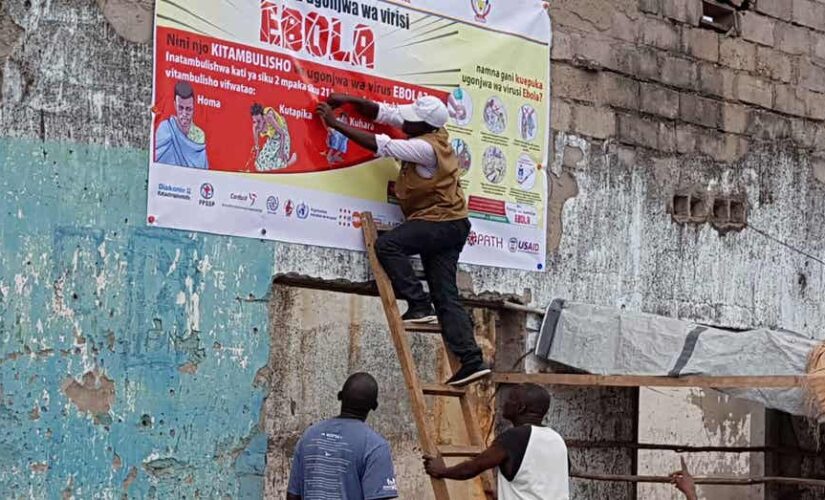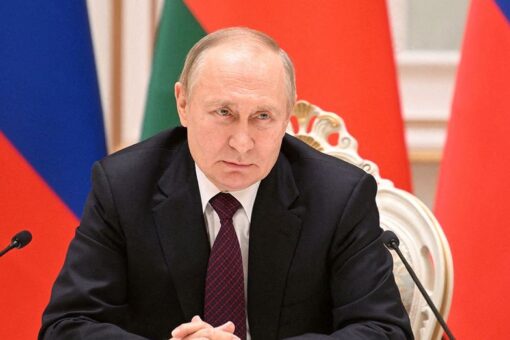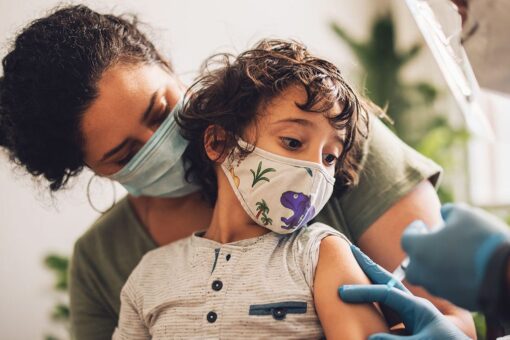NEWYou can now listen to Fox News articles!
The World Health Organization (WHO) on Friday recommended two monoclonal antibody treatments against Ebola, saying the use of such drugs combined with better care had “revolutionized” the treatment of a disease once seen as a near-certain killer.
The drugs – Regeneron’s Inmazeb (REGN-EB3) and Ridgeback Bio’s Ebanga (mAb114) – use laboratory-made monoclonal antibodies that mimic natural antibodies in fighting off infections.
DEADLY EBOLA-LIKE MARBURG VIRUS COULD ‘SPREAD FAR AND WIDE’ IF NOT STOPPED: WHO
Regeneron’s Inmazeb (REGN-EB3) monoclonal antibody medication, developed using the same rapid response technologies as Regeneron’s COVID-19 medication, is one of the two drugs the WHO is now recommending to treat Ebola virus. Pictured: men resurrect Ebola awareness poster in Tchomia, Democratic Republic of Congo, on Oct. 9, 2018.
(WHO/Aboulaye Cisse/Handout via REUTERS/Files)
“Advances in supportive care and therapeutics over the past decade have revolutionized the treatment of Ebola. Ebola virus disease used to be perceived as a near certain killer. However, that is no longer the case,” said Robert Fowler, a professor at the University of Toronto, Canada, and co-chair of WHO’s guideline development group. Effective care and the use of these treatments now leads to the recovery of the “vast majority” of people from Ebola, he said, without giving specific data.
EBOLA MAY HAVE LINGERED IN A SURVIVOR FOR 5 YEARS BEFORE SPARKING NEW OUTBREAK
The new recommendations follow trials of the drugs against the hemorrhagic fever in Democratic Republic of Congo during a 2018-2020 outbreak there. Dr Janet Diaz, lead of the clinical management unit in WHO’s Health Emergencies program, told journalists the drugs were currently available in Congo but more work was needed to improve affordability.




